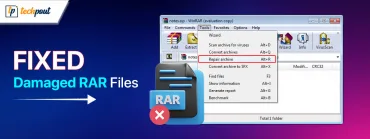How To Organize Electronic Files Efficiently

With so much digital information coming in and out of your devices, managing electronic files can be quite a task to do. These files move from one place to another nonstop and often with haste. It’s a good thing technology has caught up with these issues.
File Organization 101
Technology makes sharing, storing, and retrieval efficient and less hassle. Seamless access to the necessary files is now made possible. This article will discuss some essential tips to help improve your file management efficiency and guide you in sorting things through.
1. Improvise Your File Sharing Process
When you talk about efficient file organization, you’re not just talking about storage. It’d be best to address how you handle, send, or share these documents with department members.
For one, faxing is a standard document-sharing method everyone in the corporate world implements daily. Institutions belonging to finance, law, and the government tend to use this as one of the tools to communicate. What if there’s a way to maximize its potential while making file sharing an efficient process like fax without a fax machine? Wouldn’t it help organize things around your office?
If the file-sharing process happens within the workplace, you can establish a file server or a file-sharing network. It’d help people who have access to retrieve their files.
2. Store Documents In A Single Place
The issue of file organization has plagued businesses for a long time now. It’s a growing concern among companies because plenty of their electronic files often gets misplaced during storage and transfer. This issue further complicates the situation because businesses tend to share many files with coworkers.
To combat this, experts suggest creating a single root folder to allow easy access to the files you’re trying to retrieve. In this method, store all your work files in a folder. For PC users, the default is the My Documents.
In a shared environment, you can also create a Shared Documents folder. Both processes enable your colleagues to find essential files right from the start. Furthermore, doing this paves the way for easy backup and archiving when storage spaces run low.
Also Read: 13 Best Free File Managers For Windows 10 In 2021
3. Avoid Storing Files On Your Desktop
This topic is a follow-up to the second point above. Remember, your desktop shouldn’t be the primary storage space for your files. Instead, it should be neat and tidy. Placing many files and leaving them off around can make the entire space look cluttered.
Furthermore, it may seem cleaning your operating space can be a time-consuming endeavor. For a highly disorganized desktop, it’s recommended to use applications helping to clear and sort your documents.
4. Follow Established File-Naming Guidelines
Before saving your work files in your cloud storage or root folder, try to observe their established file-naming schemes. Usually, companies will try to solve disunity among thousands of documents moving around each department by establishing rules and guidelines for file naming. Take note of familiar characters such as underscores, dashes, and dots.
It’s also recommended to use standard abbreviations and descriptive names. Don’t forget to add dates and be specific if you must. The goal in naming files is to correctly tell the contents without the need to open them. You can follow some standard naming conventions such as the following:
- By document date;
- By document type; and
- By department or company.
For example, if the file is about an overdue letter, you can go with something that’ll appropriately correspond with your message. If all these may seem overwhelming, always be reminded these small details will help you in file identification and retrieval.
Also Read: 11 Best File Shredder Software For Mac in 2021
5. Perform File Backups Regularly
Performing data backups is a crucial part of ensuring a smooth flow of business processes and continuity. It protects the company from unfortunate events such as data loss, which can be a result of the following:
- Malware attack;
- Damage to the drives;
- Stolen storage drives;
- Ransomware attack;
- Hacking of storage accounts; and
- File deletion.
These things are avoidable if you establish a backup protocol. To provide sufficient protection for your business, you need to implement a comprehensive data backup system following these sets of processes:
- Perform data backups regularly;
- Store data on drives and cloud services; and
- Have a password for folders and files
- Keep the storage drives in a private location.
If any data loss would result in a business interference, then back up the necessary documents. Deleted files are recoverable if you install recovery software. However, certain details from a business transaction are most likely irretrievable if the storage files are hacked, damaged, or lost.
6. Delete Old, Unnecessary Files
Deleting old files can be a nerve-racking thing to do. However, you also must consider these unnecessary documents add clutter to an already messy file system. Check your company guidelines about file deletions and ascertain you won’t need those business files again.
If you’re unsure, create a folder within your root folder and name it ‘inactive’ or ‘old.’ Store those old files in the folder for safekeeping until you’re sure it won’t be used anymore.
7. Create Shortcuts And Favorites
These features are great for files and folders you’re using every day. Instead of digging your way through myriads of storage locations, try to create access for these files. It could be around the Finder tab for Mac users or the File Explorer sidebar if you’re using a PC. Utilizing these options would make your file search a breeze.
Also Read: 22 Best Free Driver Updater for Windows 10, 8, 7 in 2021 [Updated]
Closing Thoughts: Organization Is Key
It’s essential always to remember it’s best to keep your files updated and organized to maintain cohesion wherever you store your documents. Your primary goal here is to guarantee you can still find what you’re looking for after its creation in a file management system.
Moreover, proper management and organization of electronic files are undoubtedly critical in a shared environment setup. If your colleagues aren’t around, you can quickly locate and access files created by them.
As you go with your everyday tasks, consider the ideas mentioned here to sort the files you have. In the long run, it’ll be convenient for you and your organization.


